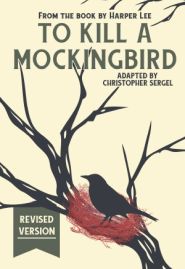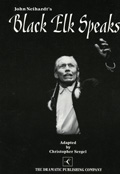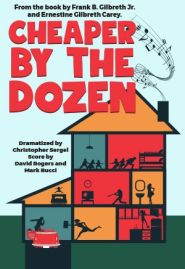
To Kill a Mockingbird (revised version)
- Full Length Play, Drama, 1930s
- 11M, 6F
- ISBN: T34
This play is a meaningful work of art and we invite you to consider it.
Description
- Full Length Play
- Drama
- 125 minutes
- Time Period: 1930s
- Target Audience: Teen (Age 14 - 18), Adult
- Set Requirements: Area Staging
- Performance Group:
- High School/Secondary, College Theatre / Student, Community Theatre
The facade of the seemingly peaceful town begins to crack when a young black man is accused of a terrible crime. Driven by an unshakeable moral conviction, local lawyer Atticus defends the man in a trial that sends violent waves through the community.
Timeless and lingering, this hard-hitting work explores prejudice, compassion and the courage to do what is right.
In this version, Scout is a young girl, and Miss Maudie is the narrator.
Characters
- Casting: 11M, 6F
- Casting Attributes: Room for Extras, Flexible casting
Available Material
| Name | Price |
|---|---|
|
To Kill a Mockingbird (revised version) Script
Order Now
Scout, a young girl in a quiet southern town, is about to experience the dramatic events that will affect the rest of her life. She and her brother, Jem, are being raised by their widowed father, Atticus, and by a strongminded housekeeper, Calpurnia. Wide-eyed Scout is fascinated with the sensitively revealed people of her small town, but, from the start, there's a rumble of thunder just under the calm surface of the life here. The black people of the community have a special feeling about Scout's father and she doesn't know why. A few of her white friends are inexplicably hostile and Scout doesn't understand this either. Unpleasant things are shouted and the bewildered girl turns to her father. Atticus, a layer, explains that he's defending a young Negro wrongfully accused of a grave crime. Since this is causing such an upset, Scout wants to know why he's doing it. Because if I didn't, her father replies, I couldn't hold my head up. When she asks why take on such a hopeless fight'the time of the play is 1935'he tells her, Simply because we were licked a hundred years before we started is no reason not to try. He goes on to prepare Scout for the trouble to come. We're fighting our friends. But remember this, no matter how bitter things get, they're still our friends. Things do get bitter'to the point where Atticus props himself in a chair against the cell door of the man he's defending and confronts an angry mob. Horrified Scout projects herself into this confrontation, and her inconvenient presence helps bring back a little sanity. Atticus fights his legal battle with a result that is part defeat, part triumph. As Atticus comes out of the courthouse, the deeply moved town minister tells Scout, Stand up. Your father's passing! This play is a meaningful work of art and we invite you to consider it. Area staging. Sound effects tape available. |
$19.95 |




